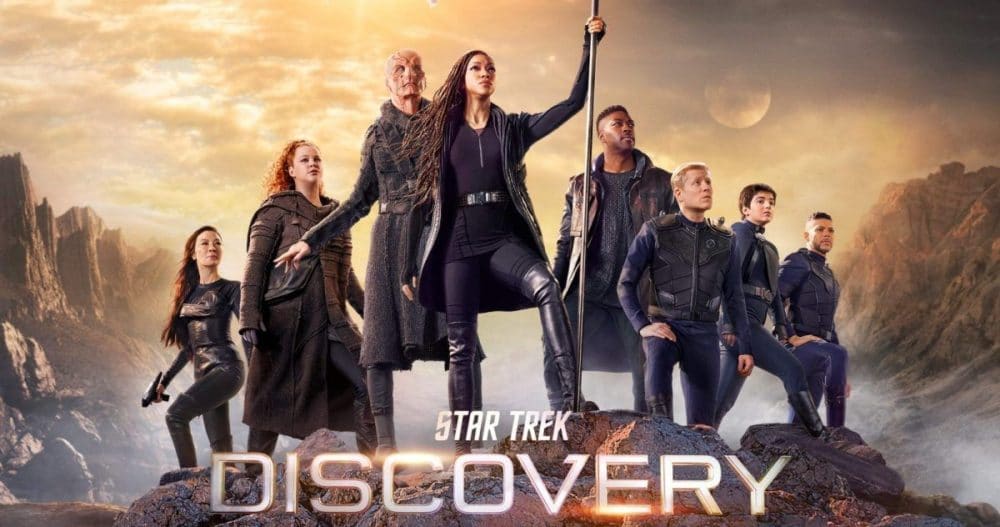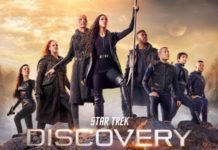
I’ve always loved science-fiction and fantasy. I’m not sure why, specifically. I also love Grande Vegas casino bonuses, but that’s just me. Maybe I love the escapism, the ability to dive into wondrous environments and explore fascinating thought experiments. Perhaps I’m just a nerd who loves it when the lasers go pew-pew.
Needless to say, I grew up on the science fiction and fantasy genre. Harry Potter, Percy Jackson, and Star Wars were (and to an extent, still are) some of my favorite stories of all time. Now, as an adult, I love Game of Thrones, the Stormlight Archives, Person of Interest, and, most relevantly, Star Trek.
And it’s heartbreaking to see what CBS is doing to the franchise.
Gene Roddenberry’s Vision
Star Trek is the result of a certain Gene Roddenberry’s optimistic vision of the future. “Star Trek: The Original Series” sought to put to screen not only what he hoped the future would be like, but a future that could possibly be. Star Trek presented an uplifting view of Humanity that improved not only technologically but culturally, spiritually, and politically.
Humanity had unified and made peace with one another, food was available to all, and space travel among the stars was not only feasible, but it was also an everyday occurrence. This is all thanks to new inventions of technology such as the Replicator and Warp Drive, the latter of which has mathematically been proven to be a feasible piece of technology (there was even a new breakthrough on the math earlier this year!).
The show also pushed forward egalitarianism by showing men and women working together in a semi-military environment when such a thing was scandalous. It even had the first interracial kiss on television!
“Star Trek: The Next Generation” took these ideas and went even further. What “The Original Series” didn’t have the budget to do, or the clout to be allowed to do, “The Next Generation” did. It said that in the future, Humans would not need currency. Women not only work with men but can hold significant positions of power too. Philosophical conflicts were present in almost every episode, not in a monster-of-the-week kind of the way, but as debates and conflicts between characters resolved with words and reason rather than lasers.
While people have their gripes with “Deep Space Nine”, “Voyager”, and “Enterprise”, they stuck to these ideas of an optimistic future – a future that sometimes has to be fought for, but a future that can and will exist nonetheless. The franchise explored characters and themes with a level of depth that really makes you think and ponder, in stark contrast to the more mindless sci-fi escapades of Luke Skywalker and The Doctor.

Star Trek: Discovery, and How it Bunged It All Up
I admit, I felt pretty excited when I heard that Star Trek was going to be getting a new T.V. show, back when Discovery was first announced. It had come off the back of J.J. Abrams’ mediocre Star Trek movies, so a new show that could breathe some new life into the franchise was pretty welcome.
Unfortunately, the alarm bells started going off pretty early on when it became known that the show was going to be a prequel. Since J.J.’s movies were already heavily criticized for not adhering well to canon, a prequel series that takes place even earlier wasn’t a good sign.
I was wrong- not because Discovery was good, but because it was (and is) far worse than I could have possibly predicted.
By the way, I will be spoiling just about everything I feel like talking about, so if you actually want to watch this hot pile of garbage, stop here.
The premise goes that Captain Georgiou and First Officer Michael Burnham, onboard the USS Discovery, make the first contact with an alien race called the Klingons (an established alien race that was a consistent presence in previous Star Trek works). Events kick off when Michael Burnham takes the advice of her step-father, Sarek, and mutinies.
She wrests control of Discovery and tries to implement a first-strike policy and attack the Klingons. She fails miserably, Captain Georgiou is killed, and Burnham is sent to prison. Not that THAT is going to matter, because Michael Burnham is just SO smart, they bring her back to Discovery five minutes later so that she can help work on an Uber-doober top-secret project.
Please take note: This will become a trend with this show.
So this covers the first two episodes or so. What we can glean is that the writers have zero understanding of Star Trek canon, don’t care at all about Star Trek in the first place, and that Michael Burnham is just… the worst person. She’s a Mary-Sue that outdoes every other Mary-Sue I’ve had the misfortune to watch or read about. Forget Disney’s Rey Palpatine nonsense. Let me walk you through just how much the universe bends around Michael Burnham.
Star Trek has always been an optimistic show about humans progressing to a more enlightened society. Socially, culturally, and spiritually. Sarek, a character from “The Original Series”, is an established diplomat from a race of pacifists (who also happens to be the father of one of the main characters, Spock).
So when Sarek advises Burnham to implement a first-strike policy against an Alien race they JUST met, it’s not only a violation of everything Sarek has stood for in the past, a violation of everything The Federation stood for in the past, but also a complete violation of Gene Roddenberry’s vision for a future where Humanity doesn’t use first-strike policies. I can’t stress enough how many times Discovery does this over the three seasons that have been released so far.
So Michael Burnham gets sent to prison for mutiny, then gets returned after five minutes, because she’s so darned smart. She’s smug and hostile to everyone, and she must always be the smartest person in the room- not because she’s an intelligent character, but because the writers decided that she’s the smart one.
There’s a scene where Burnham and Co. have to navigate these tiny ships through an asteroid field, and a cocky scientist specializing in this subject talks over Burnham to “mansplain” to her and then promptly dies. Yes, this show is THAT cheap on how it decides to prove Burnham right. Because she’s always right.
Also, Michael Burnham is literally the center of the universe. Not only is she a super-secret step-daughter of an important character, but also has a tragic backstory with the Klingons, a science-wiz mother who time-traveled to the future, who also has connections to ANOTHER top-secret organization called “Section-31”, and blah blah blah. Oh, and how could I forget the fact that she’s also a master at hand-to-hand combat, the only human to study at the Vulcan Science Academy, and farts rainbows.
Discover has a story. Technically.
The actual plot of the series is long and convoluted, and I despise just about everyone involved. At first, it’s about the Klingons, who are so mutilated by the makeup team and the writing that they bear almost zero resemblance to the Alien race they take their name from. Then it’s about Vulcan “Logic Extremists” (and it says it with a straight face!), then Klingons again. Also, there’s a bear sized Tardigrade that allows the USS Discovery to teleport literally anywhere in the universe.
Season two comes along and is about a sentient A.I. that eventually destroys all life in the universe, plus Section 31 and more Klingons. The only way to stop it is to time travel to the future where the A.I. can never get its hands on the additional code it needs to make itself sentient. So the characters do the only logical thing available to them: Build a time-travel suit, load it with the data, and fly manually into the future.
Season three then drops us into the story immediately after season two and shows Burnham arriving in the future, where she then has the suit switch to auto-pilot and self-destruct in the sky. Now you might not have read that correctly, so I’ll restate it:
She manually flies this suit to the future, where she’ll be permanently stuck, instead of turning on the autopilot mode it apparently has and letting it fly to the future by itself instead!
Also, the rest of Discovery’s crew, for some reason, decide to go with her. There’s a big plot point about how the A.I. needs the information in the ship’s computers to complete itself, so the data has to be sent to the future, but… the WHOLE crew decide to permanently go to the future? Why? Was Michael Burnham’s complete lack of likableness and charisma so endearing that no-name ensigns would agree to give up their entire lives for her?
Like, a skeleton crew of her closest friends and officers, sure, but… everyone? There are these two dudes on the bridge crew that never get more than five words to say, ever, but THEY agreed to go permanently a thousand years to the future too?
The Red-Headed Step-Child of Star Trek
I could go on and on about this show—the huge array of plot holes. The unlikable, undeserving characters who are amazing at everything but are so insecure they would never be allowed within a lightyear of a military vessel, much less an uber-duber important top-secret one.
I could, but I won’t because none of it matters. It clearly didn’t to the writers, who seem to care more about the race and sexuality of the characters than anything else.
Michael Burnham is a black woman who will not let anyone mansplain to her. The Doctor and Chief Engineer are an interracial gay couple. Ninety percent of the crew seem to be women or irrelevant. Season two introduced a lesbian engineer. Season three gave us a transgender teenage supergenius (two of them!). Ensign Tilly, who seems to off her Ritalin half the time, aspires to and is encouraged to be a Captain despite being completely unqualified for a position of leadership and responsibility.
Basically, Discovery is literally the gayest, wokest ship ever to soar the stars, and I mean that in the nicest way possible.
The sad part is, Discovery’s not even breaking any new ground either. “Deep Space Nine” had both a black guy in charge, a bisexual character and a gay kiss scene. “Voyager” had a female captain. “The Original Series” had the first interracial kiss on T.V. and egalitarian ideals at a time when that really was still actually controversial. Meanwhile, “The Next Generation” explored just about every significant philosophical idea that psych 101 has to offer and then some. I’ll quote Yahtzee Croshaw, “it’s not progressive, to progress to a place we already are!”
To sum it up, Discovery is basically every woke ideal mashed together, painted to look like Star Trek, but with none of the heart, soul, or intelligence that defines Star Trek at it’s best. “The Orville” sticks closer to the themes and spirit of Star Trek, and it’s made by the guy who does “Family Guy” for cryin’ out loud!
Discovery is a nihilistic fan-fiction that, if personified, would be the type of airhead to date a black guy just to piss off daddy.





























